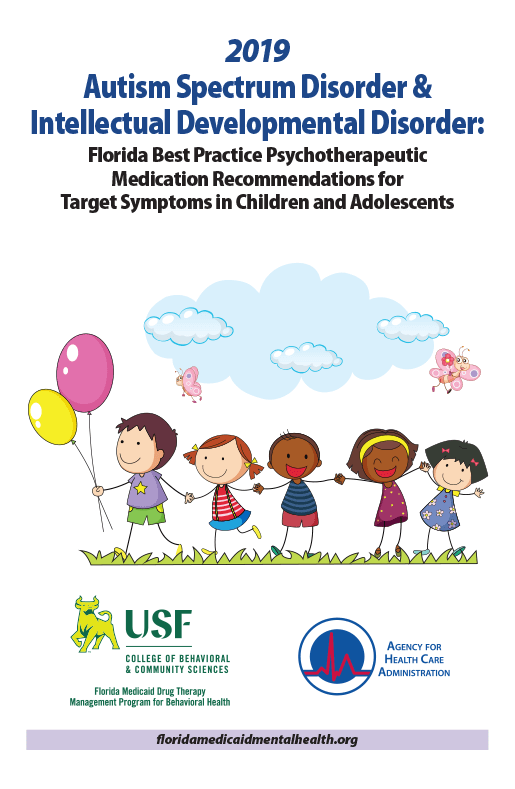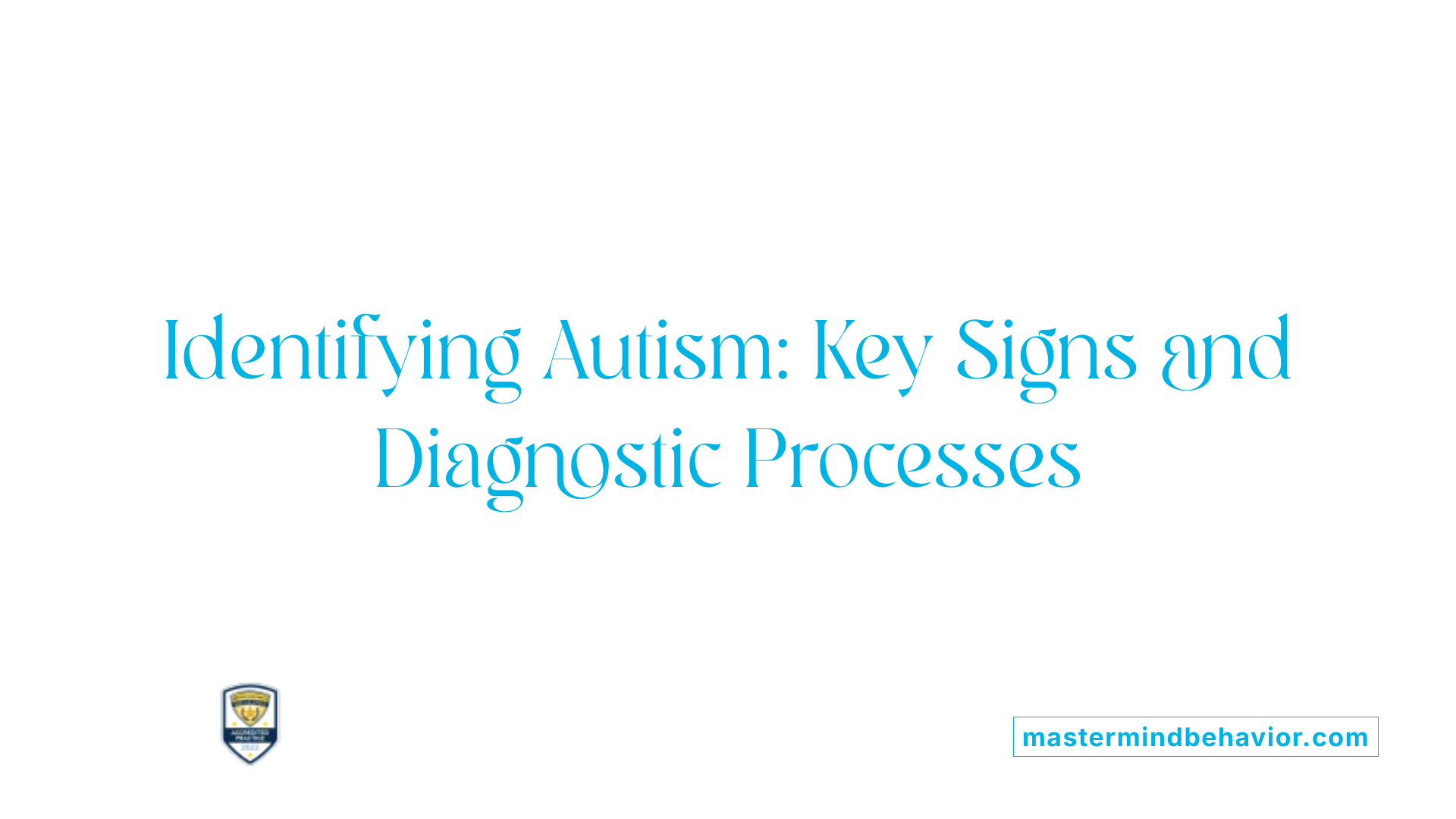Key Symptoms And Signs to Recognize in People With Behavior Autism
When you run into someone with behavioral autism, identifying vital indicators and symptoms is vital. You might notice difficulties in social interactions and communication, as well as a strong requirement for regimens. Additionally, sensory level of sensitivities can result in frustrating experiences. Recognizing these traits can enhance your assistance and treatments, but there's even more to reveal about exactly how these habits materialize in daily circumstances. Allow's discover what these indicators truly resemble.
Challenges in Social Interactions
When you connect with a person on the autism spectrum, you might notice they deal with social hints and interaction. These obstacles can make social communications really feel overwhelming for them. You may see them preventing eye get in touch with or standing too close or also far during discussions, which can produce misunderstandings. They could not detect body movement or facial expressions, making it harder for them to determine just how others are feeling.
When they do involve, they might talk regarding their passions in terrific detail without seeing if you're interested. Recognizing these difficulties can help you approach interactions with empathy and perseverance, fostering an extra comfortable atmosphere for both of you.
Problem With Verbal and Non-Verbal Communication

Non-verbal interaction can be much more challenging. You may see a lack of eye call or minimal use motions, which can make interactions feel awkward. Faces might not always straighten with the conversation, resulting in complication regarding their sensations. Identifying these signs is necessary, as it helps you better assistance and involve with people on the autism spectrum. By comprehending their interaction challenges, you can foster more meaningful links and provide an extra helpful environment.
Repeated Actions and Routines
Communication challenges often go along with other indications of autism, such as repeated actions and a strong preference for routines. You may observe that people with autism usually involve in specific, repetitive actions, like hand-flapping, rocking, or repeating expressions. These actions can provide convenience and a feeling of control in a typically overwhelming globe.
Routines are equally essential; lots of people prosper when they adhere to a structured routine. You might locate that changes to these routines can result in substantial distress. If they have a day-to-day routine of eating breakfast at a particular time or following a particular route to institution, any kind of interruption can trigger anxiety.
Identifying these patterns aids you recognize their habits and give assistance. By accommodating their demand for regular and enabling repeated activities, you can create a more comfortable environment that eases their challenges.
Sensory Level Of Sensitivities

Common Sensory Triggers
Sensory level of sensitivities can substantially impact everyday life for individuals with autism, as particular stimuli often activate overwhelming responses. Common sensory triggers consist of loud noises, brilliant lights, and strong scents. Understanding these triggers can help you handle your environment better.
Behavior Reactions Clarified
Recognizing your behavior feedbacks to sensory level of sensitivities is vital, as they commonly disclose just how you engage with the globe. You might see that specific sounds, lights, or appearances bewilder you, leading to stress and anxiety or pain. When confronted with these stimulations, you might take out, cover your ears, or perhaps respond boldy. These actions aren't simply traits; they're your method of coping with overstimulation. You may also locate yourself seeking details sensory experiences, like deep pressure or silent settings, to aid ground yourself. Identifying these patterns helps you recognize your needs better and can direct exactly how you communicate them to others. By acknowledging your sensory sensitivities, you can work in the direction of creating an environment that feels more workable and comfortable for you.
Coping Methods Review
Recognizing your sensory level of sensitivities is just the primary step; currently it's time to discover coping techniques that can aid you handle those experiences effectively. Start by developing a sensory toolkit tailored to your demands. This could consist of noise-canceling earphones, fidget playthings, or calming scents. Developing a structured routine can additionally supply predictability, lowering stress and anxiety around sensory overload. When you really feel overloaded, take breaks in a peaceful space to collect yourself. Exercising mindfulness methods like deep breathing can help ground you in the minute. Additionally, interact your needs with those around you; having encouraging family and friends can make a huge distinction. Bear in mind, finding what works finest for you may take time, so be patient and open to attempting new strategies.
Limited Interests and Focus
While many people develop a broad variety of rate of interests, those with autism frequently demonstrate restricted passions and an intense concentrate on details topics. You could see that a person with autism can invest hours diving right into their preferred subject, whether it's a specific sort of train, a details movie, or a scientific principle. This intense emphasis isn't just a hobby; it can end up being a main here component of their identity and social interactions.
You may discover that discussions revolve around these interests, and they may struggle to engage in broader subjects. For them, these concentrated interests offer comfort and a feeling of proficiency. While it is necessary to urge expedition of new subjects, appreciating their enthusiasms is just as crucial. By understanding and recognizing these restricted passions, you can foster a supportive setting where they really feel valued and recognized, enabling more meaningful links and communications.
Psychological Regulation Difficulties
People with autism typically face difficulties in psychological policy, which can be affected by their extreme focus on specific passions. You might discover that when a person is deeply involved in a favored task, they can experience strong feelings, whether exhilaration or aggravation. When points do not go as prepared., this intensity sometimes makes it tough for them to change equipments or manage their sensations - Aba Therapist.

Irregularity in Developmental Turning Points
When it comes to developing milestones, you'll discover that people with autism typically show a broad array of variability. You could see a youngster succeed in language skills yet battle with social interactions.
It's necessary to acknowledge that each person's trip is distinct. Some might develop complicated abilities early, just to deal with obstacles later on. Others may take longer to accomplish standard milestones but after that grow in particular areas. Observing these patterns can assist you recognize their strengths and needs better.
Regularly Asked Questions
How Is Autism Diagnosed in Children and Adults?
To identify autism in kids and grownups, experts examine habits, interaction abilities, and social communications. They often use standardized tests, meetings, and monitorings to figure out if an individual meets the criteria for autism range disorder.
Are There Various Kinds of Autism Range Disorders?
Yes, there are different kinds of autism range problems, consisting of Asperger's disorder and pervasive developmental disorder-not or else defined. Each type varies in severity and qualities, so understanding these differences can assist you much better support people with autism.
What Treatments Work for People With Autism?
When thinking about effective treatments for individuals with autism, you'll find options like Applied Actions Analysis, speech treatment, here and occupational therapy. Each technique can aid boost interaction, social abilities, and daily operating tailored to individual demands.
Can Individuals With Autism Lead Independent Lives?
Yes, people with autism can lead independent lives. With the ideal support, abilities training, and sources, you can aid them develop self-sufficiency, take care of everyday jobs, and prosper in various settings, promoting their independence.
Exactly How Can Families Assistance Loved Ones With Autism?
You can support your liked ones with autism by creating an organized atmosphere, urging their rate of interests, exercising persistence, fostering interaction, and promoting social abilities. Celebrate their accomplishments, despite just how small, and develop an encouraging neighborhood.
Although many individuals on the autism range can use and recognize language, they usually encounter considerable difficulties with both non-verbal and verbal communication. Identifying these signs is important, as it assists you better assistance and involve with individuals on the autism spectrum. You may notice that people with autism commonly engage in here details, repeated actions, like hand-flapping, shaking, or duplicating phrases.Sensory sensitivities can significantly affect everyday life for people with autism, as specific stimulations commonly activate frustrating reactions.When it comes to developmental milestones, you'll observe that individuals with autism frequently show a broad array of variability.